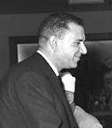Related Research Articles
Albert Habib Hourani was a Lebanese British historian, specialising in the history of the Middle East and Middle Eastern studies.

Cairo University, also known as the Egyptian University from 1908 to 1940, and King Fuad I University and Fu'ād al-Awwal University from 1940 to 1952, is Egypt's premier public university. Its main campus is in Giza, immediately across the Nile from Cairo. It was founded on 21 December 1908; however, after being housed in various parts of Cairo, its faculties, beginning with the Faculty of Arts, were established on its current main campus in Giza in October 1929. It is the second oldest institution of higher education in Egypt after Al-Azhar University, notwithstanding the pre-existing higher professional schools that later became constituent colleges of the university. It was founded and funded as the Egyptian University by a committee of private citizens with royal patronage in 1908 and became a state institution under King Fuad I in 1925. In 1940, four years following his death, the university was renamed King Fuad I University in his honor. It was renamed a second time after the 1952 Egyptian Revolution. The university currently enrolls approximately 155,000 students in 20 faculties and 3 institutions. It counts three Nobel Laureates among its graduates and is one of the 50 largest institutions of higher education in the world by enrollment.

Evelyn Baring, 1st Earl of Cromer, was a British statesman, diplomat and colonial administrator. He served as the British controller-general in Egypt during 1879, part of the international control which oversaw Egyptian finances after the Egyptian bankruptcy of 1876. He later became the agent and consul-general in Egypt from 1883 to 1907 during the British occupation, prompted by the Urabi revolt. This position gave Baring de facto control over Egyptian finances and governance.

The British conquest of Egypt (1882), also known as Anglo-Egyptian War, occurred in 1882 between Egyptian and Sudanese forces under Ahmed ‘Urabi and the United Kingdom. It ended a nationalist uprising against the Khedive Tewfik Pasha. It established firm British influence over Egypt at the expense of the Egyptians, the French, and the Ottoman Empire, whose already weak authority became nominal.

Ahmed Lutfi el-Sayed or Aḥmad Luṭfī Sayyid Pasha was a prominent Egyptian nationalist, intellectual, anti-colonial activist and the first director of Cairo University. He was an influential person in the Egyptian nationalist movement and used his position in the media to strive and gain an independent Egypt from British rule. He was also one of the architects of modern Egyptian nationalism as well as the architect of Egyptian secularism and liberalism. He was fondly known as the "Professor of the Generation". Lutfi was one of the fiercest opponents of pan-Arabism, insisting that Egyptians are Egyptians and not Arabs. He is considered one of the most influential scholars and intellectuals in the history of Egypt.

Raouf Abbas Hamed was an Egyptian historian and a professor of modern history at Cairo University, until his death in 2008. He served as the president of the Egyptian Society of Historical Studies. He filled various senior academic positions, most of which in the Cairo University.
Arnold H. Green was a history professor retired from teaching at Brigham Young University, where he specialized in the modern history of the Middle East, especially the eras of European colonization and of decolonization.

Sir Edward Baldwin Malet, 4th Baronet was a British diplomat.

Princess Zainab Nazli Hanim was an Egyptian princess from the dynasty of Muhammad Ali Pasha and one of the first women to revive the tradition of the literary salon in the Arab world, at her palace in Cairo from the 1880s until her death.

Abdin Bey al-Arnaut was an Albanian commander and politician of Egypt during the early era of Muhammad Ali's rule. A member of the core group of Muhammad Ali's commanders, after his death the Abdeen Palace named after him was built on the site of his residence in Cairo and a district of the city was renamed to honour him.

Muhammad Ali Pasha was the Ottoman Albanian governor and de facto ruler of Egypt from 1805 to 1848, considered the founder of modern Egypt. At the height of his rule, he controlled Egypt, Sudan, Hejaz, Najd, the Levant, Cyprus and parts of Greece.
Abaza is a surname.

Shams Al Din Badran was an Egyptian government official. He served as minister of defence of Egypt during Gamal Abdel Nasser's era and the unsuccessful Six-Day War of 1967. He was removed from his post during the war and later imprisoned. After his release he married a British woman and lived in "self-imposed exile" in the United Kingdom.
Husayn Fawzi Al-Najjar was an Egyptian historian, political scientist, strategist, and Islamic scholar. During his career, he published over 55 books on Middle Eastern history and politics.
Afaf (عفاف) is an Arabic language feminine given name.
Amina Hanim was the first princess consort of Muhammad Ali of Egypt, the first monarch of the Muhammad Ali dynasty.

Abu Naddara was an Arabic political satire magazine based in Cairo, Egypt, and then in Paris, France. Its title, Abu Naddara, was the pseudonym of the founder, Yaqub Sanu. The magazine was the first Arabic publication which employed cartoons to express social and political criticism. It existed in the period 1877–1910.
Al Kashkul was a weekly political satire magazine in Cairo, Egypt. It was in circulation for twenty years between 1914 and 1934. Both Al Kashkul and its rival Rose Al Yusuf played an important role in the establishment of cartoon-based political journalism in the country.
Al Ustadh was an Arabic satirical, literary and political journal that was established by Abdullah Al Nadim in Cairo, Egypt, and published for eleven months in the period August 1892–June 1893. Although it was a short-lived publication, it played an important role in the development of short story genre in Arabic.
References
- 1 2 Interview with Afaf Lutfi al-Sayyid Marsot, The Historian , Vol. 54, Issue 2 (1992), pp. 225-42.
- ↑ http://www.aucegypt.edu/alumni/chapters/.../ProfileDrAfafMarsot.doc%5B%5D